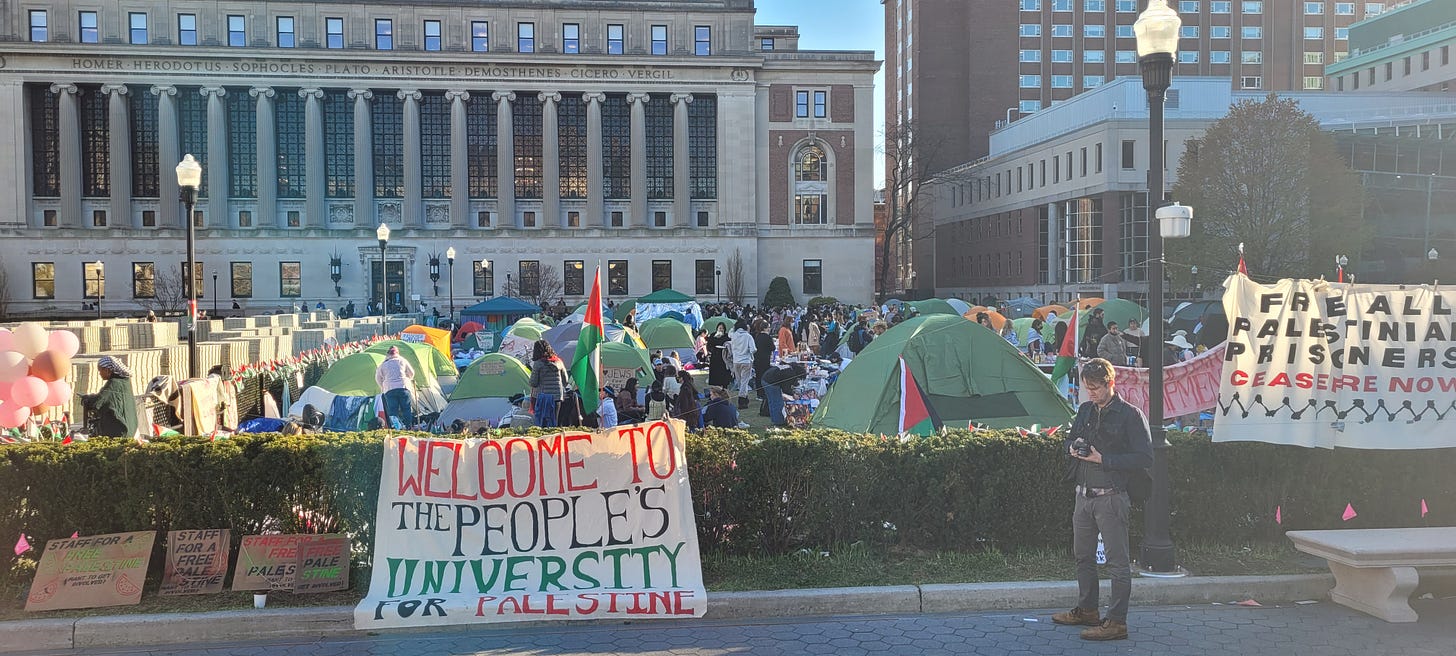Is it possible to culturally appropriate yourself?
The Attorney General, who is Jewish, posted a Chanukah meme with the wrong menorah and the Hebrew backwards
Is it possible to culturally appropriate yourself? I only ask because this week, the Attorney General posted a Chanukah meme that had the wrong number of branches on the menorah and the Hebrew written backwards. Rather than “chag chanukah sameach”, or “happy Chanukah”, it said “chaemas hakunach gach”, which is gobbledygook. The Attorney General, Richard Hermer KC, is, of course, Jewish. So I ask again: Is it possible to culturally appropriate yourself?
Let’s give the man the benefit of the doubt. The farcical post – since deleted – was probably the work of some social media denizen of the lower echelons of his office. Let’s assume that Hermer did not sign it off. But the fact that nobody bothered to check it with an actual Hebrew speaker raises certain questions about his team. Jewishness was culturally appropriated on behalf of a Jew, and in a rather ham-fisted way at that. Does the Attorney General understand English irony? I’m losing track.
Hermer – a member of Alyth Gardens Reform Synagogue – will be familiar to many as the man who withdrew British objections to the arrest warrant for Benjamin Netanyahu at the International Criminal Court. In September, he was involved in suspending 30 arms export licences to Israel; he has strongly opposed efforts to outlaw boycotts of Israel in the past; and he once wrote a chapter in a book called Corporate Complicity in Israel's Occupation, edited by people described by one Tory MP as “interesting, I fear, in the most negative sense”.
Yet the man is a committed Jew, someone with “all the usual family and emotional commitments to Israel”, as Daniel Finkelstein put it. And now his office has issued a Chanukah greeting with the Hebrew written backwards. Is anybody keeping count of the levels of irony here?
If cultural appropriation is poaching somebody else’s identity for your own ends, when it comes to Israel there’s a lot of it about. There are some influencers with large social media followings who since October 7 have found in their hearts a mysterious passion for defending the State of Israel. But as irritating as they are, at least they are on the right side of the argument.
It’s the people who appropriate the Palestinian cause that really stick in the throat. I noticed this very vividly a few weeks ago when I returned to Britain from Israel. The feeling of the country itself – the Arabs and Jews strolling on Tel Aviv beach, the appalling state of the ravaged kibbutzim along the Gaza border, the tension in the Old City of Jerusalem, the fluttering Druze flags, the rallies against the far-right, the panicked dash for the bomb shelter – was in my blood. And here in London was a young woman in a crop-top with a keffiyeh wrapped around her head, yelling slogans through a megaphone that no Palestinian would understand.
It is cultural appropriation that underpins groups like Queers for Palestine, Sex Workers for Palestine and Trans people for Palestine. For them, this isn’t about real-life Palestinians or any form of “genocide” (if it was, they would have marched against Bashar al-Assad; and they would have realised that in real-life Gaza, they would be murdered). It is about stealing the trendy Palestinian cause as an emblem of their own progressive politics. It’s about themselves.
Writing in 1975, Saul Bellow observed that there wasn’t one Israel but two. The first, he wrote, was “insignificant”, accounting for less than a quarter of a per cent of the Middle East. However, “the mental Israel is immense, a country inestimably important, playing a major role in the world, as broad as all history and perhaps as deep as sleep.” Fifty years later, we have two Palestines: the real-life place and the mental version, hijacked shamelessly as a totem for the left, as shallow as a bad orgasm. There are two keffiyehs, two flags, two rivers and two seas.
It is this cultural appropriation allows students at the West’s most prestigious universities to built tent encampments in support of a religious fascist, authoritarian regime, 3,000 miles away, that is menacing the Middle East’s only democracy. And the irony of the matter – more irony! – is that these same activists are the ones who complain about cultural appropriation in the first place.
At the end of my book, Israelophobia (published on September 7, 2023), I offered five questions that have the power to expose the bigotry behind the activism. The first of these is simple: “What has it got to do with you?” Here’s my explanation:
“From the streets of Manchester to the campuses of Michigan, many Israelophobes have no dog in the fight. With no connection to the region, they could have chosen to campaign for the rights of the Afro-Brazilians or the Torres Strait Islanders or the ethnic pygmies of central Africa who suffer at the hands of the Bantu peoples. That’s not to say that focusing on one injustice is wrong in itself. (I’m not talking about reasonable campaigners here, only the ones basing their arguments on falsification and demonisation.) But why do so many plump for the Palestinians?
“It is hard to argue that it is out of concern for their welfare. If that was the case, campaigners would have been equally vocal when Assad bombed the Palestinian community in Yarmouk or when Hamas has oppressed its own people; on a broader note, since incomparably more innocent Muslims are killed by Islamic terrorists and tyrants than by Israel, you’d expect them to have a thing or two to say about that.
“There are usually two true explanations. First: the Palestinian cause has become an ideological totem for the leftist revolutionary instinct and a collective expression of the political identity of adherents. Second: the Jews.”
Sadly, that passage proved as prophetic as the rest of the book. But what I could not have foreseen was the myriad species of cultural appropriation that would subsequently breed around the Israeli-Arab conflict.
Narcissists on the right appropriate the Israeli side; narcissists on the left – and there are many more of these – do the same with the Palestinian cause, and much worse; and progressive Jews like Richard Hermer get caught in a web of self-undoing cultural appropriation that provides the perfect metaphor for 2024.




